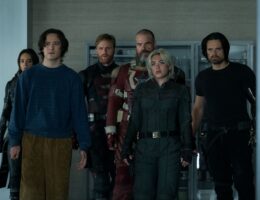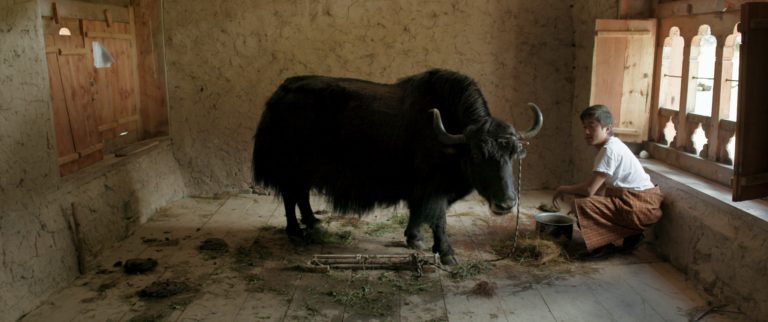If you’re not already caught up on “awards fare”, the first couple months of the new year can be a prestige buffet. But it can also feel like a dumping ground before the “real” spring season of “actually good” movies picks up. Although it can be a wasteland, surely there are some gems to be found? So as we bid farewell to Dumpuary … a SunBreak Survey: what’s the best thing you saw in the last month?
Josh: Since I’m compiling the responses to this survey I’m going to cheat and pick one of each: a catch-up and a new release. Between festivals and voting for the SFCS awards I was in pretty good shape even before before the Oscar nominees were revealed earlier this month. But, like many awards prognosticators, one that I’d completely missed was surprise International Film nominee Lunana: a Yak in the Classroom. While it’s probably the least sophisticated of this year’s nominees, its storybook level plot is sweet, the filmmaking captures gorgeous remote setting in Bhutan’s high altitude valleys, the mostly non-professional cast is disarmingly cute and/or compelling, and (spoiler) it delivers on the promise of its title. There is a yak in that classroom and he, too, is a a charmer.
(Oscar completists, fans of cute children, or appreciators of yak dung shouldn’t hesitate to rent Lunana: A Yak in the Classroom on most of the major VOD platforms. Header image courtesy of Samuel Goldwyn Films.)
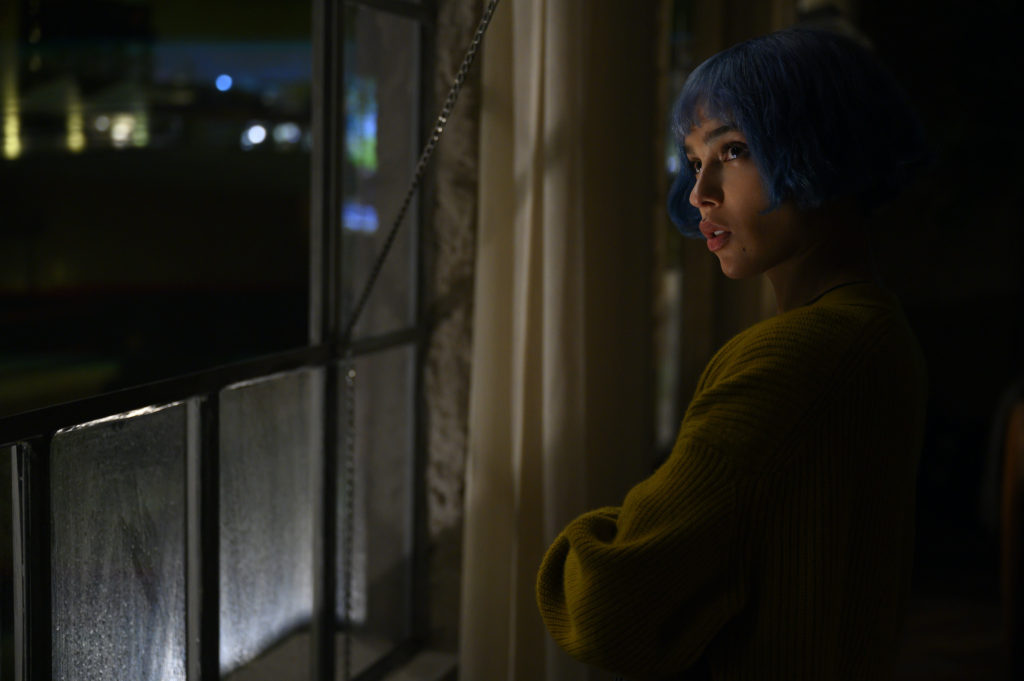
But that wasn’t February’s most pleasant surprise for me. Given that he’s one of our most reliably entertaining working filmmakers, Steven Soderbergh’s direct-to-streaming era feels kind of like slumming. But if uploading a new totally different genre movie once a year with stellar casts and supreme competence works for him, who am I to complain when the next one happens to pop up on my HBOmax home screen recommendations? Let Them All Talk took friends with long-seething resentments on a cruise ship; No Sudden Move dropped back in time for a Detroit crime thriller; and now, KIMI comes to Seattle for a technological update on Rear Window. What a time to be alive and online.
Set in last summer’s burst of post-vaccinated pandemic optimism, it stars Zoe Kravitz as a work-from-home programmer whose job involves diagnosing AI (the title refers to a local startup’s people-powered Siri/Alexa/Google Assistant) queries gone wrong. Outside the windows of her ahistorically spacious Pioneer Square loft, the world is finally dipping a toe into normalcy, but she still has very-relatable paranoia about breaking her quarantine rituals. On the precipice of her company’s IPO, she hears a very disturbing recording caught by a customer’s device that sounds a whole lot like a murder. Not great for the possibly dead person, even worse for stock options.
An overwhelming desire to do the right thing breaks Kravitz out of her cocoon, into a labyrinthine maze of overseas hackers, local human resources deflection, and evading menacing corporate henchmen. On top of being a crackerjack thriller with Soderbergh’s trademark fluid camerawork falling hard for a superstar physical and emotional performance from Kravitz and her bright blue bob haircut, it’s also a great Seattle Movie (even though most of the interiors were filmed in LA). First, it gets points for showing that it’s possible to set a movie here where it doesn’t rain even once (we’re not supposed to let people know that, but I’ll allow it). He also captures how the alchemy of Seattle Freeze combined with pandemic compliance to reshape social interactions as well as the lingering agoraphobia. A ride on the light rail is a jittery obstacle course of managed anxiety; anyone with an umbrella is not to be trusted; good-natured liberal downtown protestors turn out to be inadvertent heroes; and the dark oppressive forces of tech capitalism and digital surveillance loom as the real villains (great casting with magician Derek DelGaudio as the head of the upstart company). Some of the hot nonsense required to get us to a breathless mousetrap finale might not hold up to close scrutiny, but the emotional beats ring true and Soderbergh gets us in and out in a tight ninety minutes, which is a gift in and of itself. This would have been gangbusters in a theater, but given the subject matter, it’s a solidly-appropriate watch-from-home.
(KIMI is currently streaming on HBOmax.)

Chase: I also share in Josh’s love of KIMI as, not only does it prove Soderbergh is still a must-see director and that Zoë Kravitz deserves to be in more things, but it also shows the value of actually shooting in Seattle.
However, what I’ll go for as my best of recent memory is Cyrano. I had been uncertain going into it and still think it is imperfect, though my goodness Peter Dinklage as the titular man himself absolutely crushes it. From his opening scene onwards he is just overflowing with charisma and wit. I know there have been some who were less enthused about the music, but I completely loved every second of it. The way that Dinklage’s unique, gravely voice was balanced with some of the more seasoned singers made it all wonderful. A scene towards the end that makes use of the song “Wherever I Fall” in particular is worth the price of admission alone.
(Cyrano is now playing in theaters nationwide!)
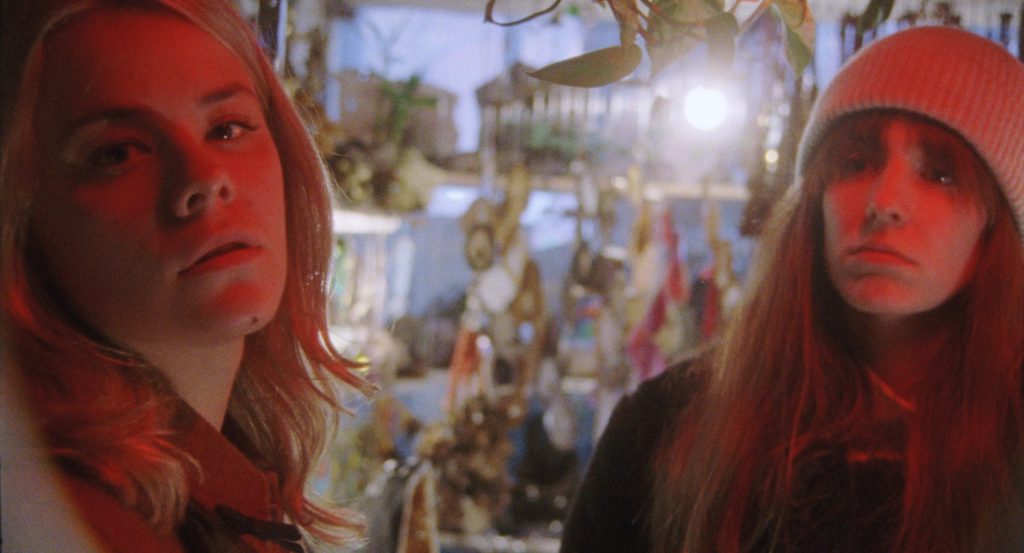
Chris: Most of the movies I saw in February, I’ve written about already, and saying Jackass Forever was the best movie I saw all month seems to indicate a lack of effort. Or a lack of something. Fortunately, I was able to catch one of the small handful of screenings at the Grand Illusion for The Scary of Sixty-First. Making her debut as a filmmaker, actress and podcaster Dasha Nekrasova directs an extremely tense thriller about two roommates (Betsey Brown and co-writer Madeline Quinn) who find a too-good-to-be-true Manhattan apartment. What turns out to be the catch is that the apartment was previously owned by Jeffrey Epstein and where he allegedly did terrible things to young women. When a mysterious, nameless woman (played by Nekrasova) shows up, she leads one of the roommates down a rabbit hole of paranoia and conspiracy and the other she helps push out. The movie is filmed like a Giallo horror film and feels like a modern thriller. The Scary of Sixty-First is propelled by neurosis and tension and it works very well. The thing I kept coming back to each time I thought about this movie is how much is left for the audience to interpret on their own. Nekrasova’s style as a director makes you wonder how much of the bad things that happen are real or psychosomatic. The film sucked me in and didn’t let go until I was a true believer and there was no turning back.
(The Scary of Sixty-First can be streamed through the usual VOD platforms and premiers on the horror streaming channel Shudder on Thursday.)
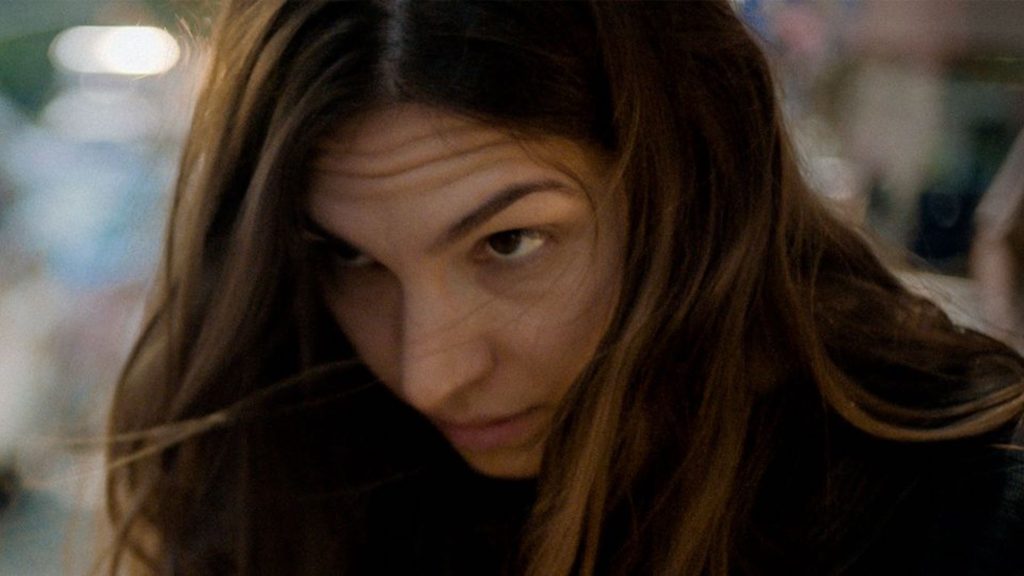
Morgen: February brought few opportunities for me to see what the world of cinema has to offer. Chase mentioned Cyrano and that was the only in-person viewing I ended up having. However, I did take on the challenge of Slamdance this year and it bled from January into February so I’ll talk a little about my experience there.
The best film from the festival, at least from my sadly limited schedule, was Kristen Abate’s feature-length directorial debut Straighten Up and Fly Right. Kristen, a young woman with a debilitating form of arthritis, Ankylosing Spondylitis, struggles to make it through every day mainly with the help of a lot of weed, pizza, and a huge chip on her shoulder. After meeting someone similarly declined she fights the feeling of belonging that he offers, but reluctantly loses the battle when they become roommates and friends. He’s found a way to slough off the righteous anger and wants to help her do the same through a community that he’s created and cultivated for his own sanity. Whether she takes it or not is up to her.
We tend to see disabled characters as lovable sidekicks or brave friends whose woefully underdeveloped personal story pushes main characters to be better people. Instead of starting off brave or heroic, our protagonist is kind of an asshole. The first few scenes throw open the door and let us see pain, anger, and self-hatred; it shoved everything out in the open for us to experience and sit in uncomfortably. Her loop of unhappiness was interrupted by one person, and that’s all it takes sometimes. He wasn’t the magical fix, but the best part was that he also didn’t want to “fix” her. I appreciate the raw emotion laid bare throughout the story and even when she found joy, she didn’t really trust it at first. It didn’t end with her riding off toward a rainbow riding on a unicorn but she grew as a human. She opened herself up to people, good or bad, and that’s something we all struggle with and can relate to.
The only disappointment is the director cast herself, an able-bodied young woman, as the lead. Just like with POC films played by white actors, if the situation arises, open up the opportunity for disabled actors to perform in a role they are uniquely acquainted with. Even if it’s not the specific disability portrayed on the screen, the perspective is there and will only enrich the character that much more.
There were other shorts and one feature from Slamdance that I thoroughly enjoyed, so I’ll catch you up on those soon!
(Straighten Up and Fly Right is still seeking distribution.)


